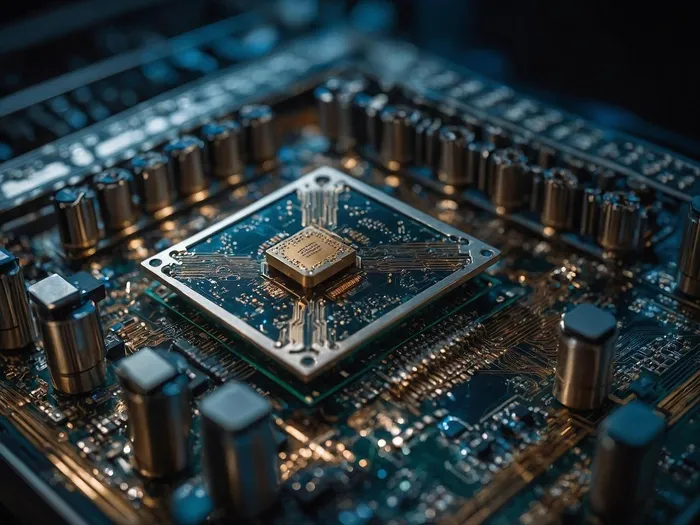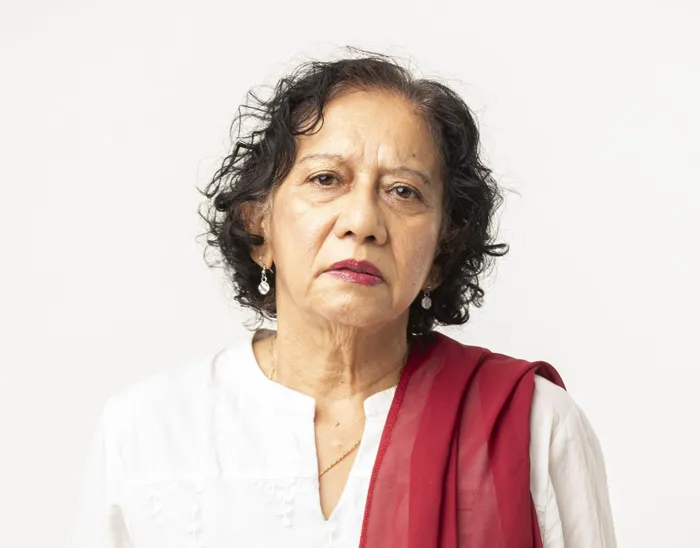
India is emerging as a serious disruptor in the global tech industry through its aggressive semiconductor push.
Image: Pete Linforth/Pixabay
US President Donald Trump’s trade war with China has put the global economy into a tailspin but amid the instability and uncertainties, there are windows of opportunity for countries like India and South Africa, especially in the semiconductor, IT, and AI sectors.
The trade war is significantly affecting the tech and the semiconductor industry in particular, by disrupting global supply chains and increasing production costs, leading to possible shifts in manufacturing hubs.
India’s semiconductor industry has been growing rapidly with strong support from the government, and New Delhi has ambitions to compete with countries like Taiwan, China, South Korea, the US, and Japan, the dominant players in the semiconductor space. With a projected 15% CAGR leading to a $108 billion semiconductor industry by 2030, the sector in India is poised for a boom.
South Africa has a nascent semiconductor industry, which is involved in both export and import activities. The South African government sees the semiconductor sector as strategically important and is encouraging investment, local manufacturing, and skills development. The South African semiconductor chemicals market is projected to experience growth, with a CAGR of 7.3% from 2025 to 2030, reaching a revenue of USD 129.9 million by 2030.
With the noose tightening around China’s tech and related sectors as a result of Trump’s Trade War, and the imposition of exorbitant tariffs, alternate sources of semiconductors, Information Technology, and AI products must be found. This scenario calls for increased trade and investment in the tech sector as countries scramble for alternative markets and suppliers.
While Pretoria’s semiconductor sector may be embryonic, there is massive scope for collaboration with India because South Africa is rich in minerals (cobalt, copper, graphite, silicon, and tantalum), used for manufacturing semiconductors. India’s experience in galvanising government resources and its critical skills pool can benefit South Africa, and potentially attract investment from Indian companies.
The door for collaboration is wide open with both countries seeking to prioritise economic growth and prosperity.
Beyond sharing a historical bond forged through their mutual struggles against colonialism, and India’s support for apartheid, the two countries have been in a cooperative relationship through BRICS (Brazil, Russia, India, China, and South Africa), which has provided a platform for mutual development and bilateral ties.
New Delhi and Pretoria are also collaborating through the IBSA (India, Brazil, South Africa) Dialogue Forum which focuses on economic, social, and political issues.
Prabhat Kumar, India’s High Commissioner for South Africa, underlined the mutual desire for economic cooperation in the interest of both countries, in an interview with the GIBS Institute’s Acumen Magazine late last year: “Economic growth and shared prosperity are now at the top of the agenda for India and South Africa. The governments of our two nations share similar outlooks, as well as a sense of equality, justice, and fairness. Now the time has come to rekindle a new relationship and not only talk about the past, but to build for the future.”
“Now, growth is the only conversation, and for that we need international collaboration,” Kumar said, adding that South Africa was “growth-hungry” and there was the potential for partnerships.
South Africa’s Minister of Trade, Industry and Competition Minister Parks Tau, told business leaders and Indian companies at the launch of the India-SA Chamber of Commerce (ISACC) last year that South Africa was committed to strengthening bilateral trade and investment with India.
“In 2023, India ranked number eight as South Africa’s export destination and number four as a source of imports. Over the past five years, our bilateral trade increased from USD 8 billion to USD 13 billion.
“We have not yet reached the target of USD 18 billion. We will intensify our efforts to facilitate trade and investment between the two countries,” Tau added.
Amidst the current trade war, collaboration in the fields of semiconductors, AI, and technology is taking on new urgency. New Delhi is actively pursuing its semiconductor ambitions, and South Africa, with its raw materials and potential, is looking to leverage this for its own economic growth and technological advancement.
South Africa can also benefit from India’s AI talent pool and burgeoning AI market, and collaboration could drive innovation and economic growth in both countries.
Collaboration in developing technology would build local capacities in both countries, making them less dependent on foreign suppliers, while policies encouraging investment and innovation could potentially attract multinational companies to relocate to India and South Africa.
New Delhi and Pretoria can partner to develop digital infrastructure, including high-speed internet and cloud computing; develop solutions against cyber attacks; and develop common standards and best practices to address data privacy threats.
The cherry on the top: collaboration will help both countries deal with the headwinds from Trump’s trade war whilst promoting the growth of key sectors of their economy.
Fawzia Moodley, Freelance Communications Practitioner at Red 6 Consultants.

Fawzia Moodley.
Image: Supplied.
